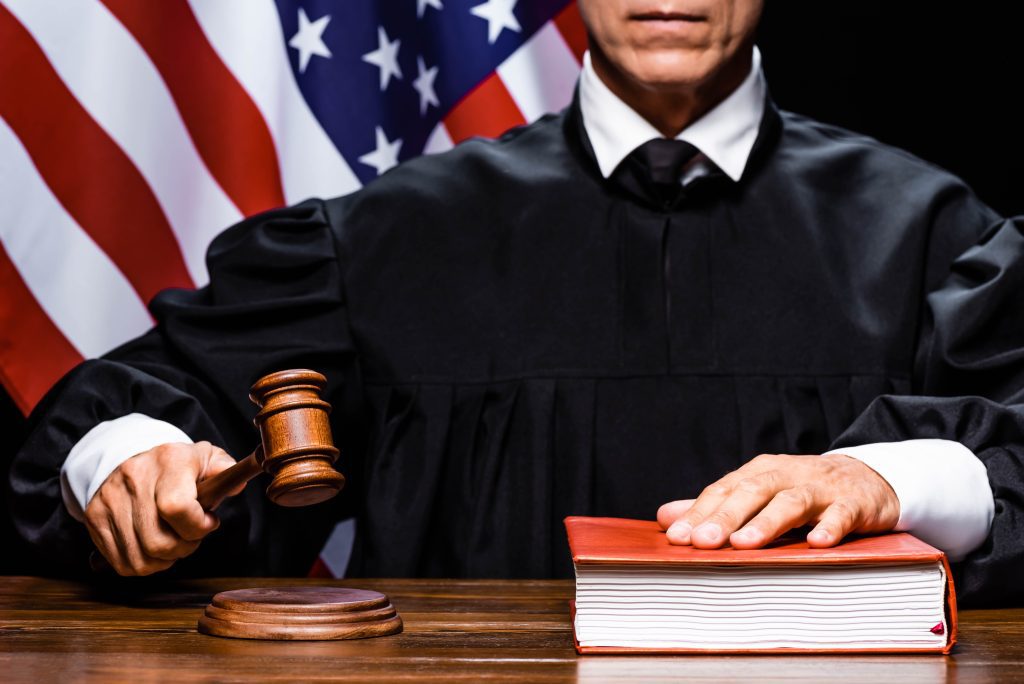There is a noticeable difference in Louisiana law compared to the other 49 states in the U.S. due to a more diverse set of origins. While most states in the country follow the common law system, which is heavily rooted in English tradition and relies on precedent, Louisiana's legal system is largely influenced by civil law, drawing from French, Spanish, and, ultimately, Roman law.
A Brief Overview of Louisiana Law
Historical Context
Louisiana's legal system has a unique history that sets it apart from the rest of the United States. The state's roots are deeply embedded in different legal traditions, particularly those of Spain and France. The historical influence of these countries resulted in Louisiana being the only state that does not use British common law as its basis for interpreting and applying the law.
Instead, Louisiana law is primarily based on the Napoleonic Code, a system of regulations introduced by Napoleon Bonaparte in 1804. This system follows principles of civil law that were prevalent in European countries like France and Spain at the time. This contrasts with other states, which apply a common law system based on English judicial precedent.
Mixed Jurisdiction
This fusion of civil and common law traditions makes Louisiana a mixed jurisdiction state. The result is a complex legal structure unique to Louisiana, which can be observed in both its substantive and procedural aspects.
The mixed nature of Louisiana law has led to the development of a unique legal culture in the state, especially in cities like New Orleans. As a result, the legal profession in Louisiana often requires an understanding of both common law and civil law principles in order to navigate the state's legal system effectively.

Key Components of Louisiana Law
Civil Law System
As discussed, one main difference in Louisiana law is that it operates under a civil law system rather than a common law system. The civil law system of Louisiana is based on written laws and statutes, with roots in French and Spanish codes and, ultimately, Roman law. This is in contrast to the common law system used in other states, which relies on case law and judicial decisions. The distinction between Louisiana civil law and the common law of other states largely depends on how the laws are interpreted and implemented.
Stare Decisis and Precedent
While common law systems heavily rely on precedent, the legal concept of stare decisis plays a more limited role in Louisiana law. Instead, Louisiana's civil law system is primarily concerned with interpreting and applying written laws. Although Louisiana courts may use previous case rulings as guidance, they are not bound by them in the same way that common law courts are, allowing for greater flexibility in judicial decisions.
Given the unique nature of Louisiana's legal system, those involved in contractual and tort disputes may find the application of its statute of limitations different than what they would expect in other states with a common law tradition. In Louisiana, the law establishes specific time limits for filing civil claims, which may differ from the deadlines used in common law states.
Areas of Law in Louisiana
Estate Law
In Louisiana, estate law is referred to as Succession and Donations, whereas, in other states, it is typically called Trust and Estates. One significant difference in Louisiana's estate law is the concept of forced heirship, which mandates that a specific portion of a deceased individual's estate be reserved for their children.
Forced heirship is a unique difference in Louisiana law that differs from the general practice in common law jurisdictions, where a testator has complete discretion in determining how to distribute their assets. In Louisiana, however, if there are any surviving children, they are considered forced heirs and entitled to a portion of their parent's estate.
Family Law
The state's civil law tradition influences family law in Louisiana. In particular, marriage and divorce rules are distinct from other states. One example is that Louisiana recognizes covenant marriages, which entail a greater level of commitment and make obtaining a divorce more difficult. Couples entering covenant marriages choose to waive their right to a no-fault divorce and agree to seek marital counseling before proceeding with a divorce.
Additionally, Louisiana law has different property regimes, which impact the classification and division of assets during a divorce. Community property principles are applied in Louisiana, meaning that any property obtained during the marriage is generally considered jointly owned by both spouses.
Contracts Law
In Louisiana, judges typically rely on the Civil Code to make decisions relating to contracts, while common law jurisdictions follow judicial precedent. This distinction leads to some differences in how contract disputes are resolved.
A notable feature of Louisiana contracts law is the requirement of a cause, or valid reason, for entering into a contract. This requirement differs from common law, where consideration, or something of value exchanged between the parties, is the primary requirement for a contract.

Criminal Law
Though Louisiana follows the civil law tradition in many areas, its criminal justice system is more in line with other U.S. states. The state's criminal law is primarily governed by the Louisiana Criminal Code, which, similarly to other jurisdictions, outlines various crimes, penalties, and procedures.
Despite the similarities, Louisiana's criminal justice system stands out in some aspects, such as the use of non-unanimous jury verdicts in some instances. This practice remained in place until 2020, when the Supreme Court ruled that non-unanimous jury verdicts are unconstitutional.
Louisiana Legal System
Legal Procedures
The Louisiana state legislature maintains the Civil Code that governs private law in the state, setting it apart from the rest of the country's reliance on the U.S. Federal Rules of Civil Procedure.
Judicial Interpretation and Terminology
Louisiana judges differ from their counterparts in other states in their approach to interpreting the law. While common law judges are bound by precedent, Louisiana judges primarily rely on the Civil Code when deciding cases. This means that they do not necessarily have to follow previous judicial decisions, giving them greater flexibility in their interpretation of the law. The terminology used in the Louisiana legal system also reflects its civil law roots, with terms such as “obligation” and “tort” stemming from French and Latin origins.
Federal and State Interaction
Despite its distinct legal framework, Louisiana is still responsible for abiding by federal law and the U.S. Constitution. This means that interactions between Louisiana's state laws and federal laws follow the usual framework of federal preemption, where federal law takes precedence over state law in cases of conflict. Louisiana courts and state agencies continue to operate within this dual system, ensuring that Louisiana laws and federal statutes are enforced and interpreted harmoniously.

Navigating Louisiana Law
Louisiana law is unique due to its mixed legal system, which combines civil and common law elements. This presents some challenges and differences when it comes to seeking legal counsel and navigating the legal system in Louisiana.
Working with a Louisiana Lawyer
When dealing with legal matters in Louisiana, it's essential to work with a Louisiana lawyer who is well-versed in the state's specific laws and procedures. This is particularly important in areas such as personal injury law, where an experienced attorney can navigate the intricacies of the Louisiana Civil Code and ensure your case is handled appropriately.
In Louisiana, a knowledgeable attorney will be familiar with:
-
- Louisiana Civil Code: this code covers a wide range of areas, including personal injury, property law, and contract law.
- Precedent and Judicial Decisions: judges may sometimes rely on precedent in situations where the code is unclear or silent on a particular issue.
- Mixed Jurisdiction: Louisiana's legal system is unique in that it incorporates aspects of both civil law and common law, so a skilled attorney must be able to navigate this mixed jurisdiction effectively.
Authoritative Sources
In order to fully understand and work within Louisiana's legal system, it is essential to refer to authoritative sources. Some important sources for Louisiana law include:
-
- Louisiana Civil Code: a compilation of written statutes that govern legal relationships and disputes in the state.
- Louisiana Revised Statutes: official statutes enacted by the state legislature and can be found on the Louisiana Legislature's website.
- Louisiana Case Law: Though not as predominant as in common law states, case law (previous judicial decisions) can still inform the interpretation and application of the civil code.
- Louisiana Court Rules: Each jurisdiction in Louisiana has its own set of rules governing court procedures. Being familiar with these rules is crucial for navigating Louisiana's legal system effectively.
You can confidently navigate the state's mixed legal system by working with a skilled Louisiana lawyer and leveraging authoritative resources.
The Difference in Louisiana Law from Other States Wrap-Up
The main difference in Louisiana law is the use of civil law vs. common law due to the state's history of French and Spanish influence. This type of law causes Louisiana to emphasize and interpret written laws and statutes more than judicial decisions and precedents.
This striking difference gives Louisiana a distinct approach to matters such as trust and estates law, real estate law, and inheritance, resulting in unique procedures and legal attitudes not seen in other parts of the United States.
By understanding the unique characteristics of Louisiana's legal system, one can appreciate the rich cultural and historical influences that have shaped the state's approach to law. This foundation, rooted in civil law, creates a fascinating legal landscape that continues to evolve and challenge traditional American legal thought.




